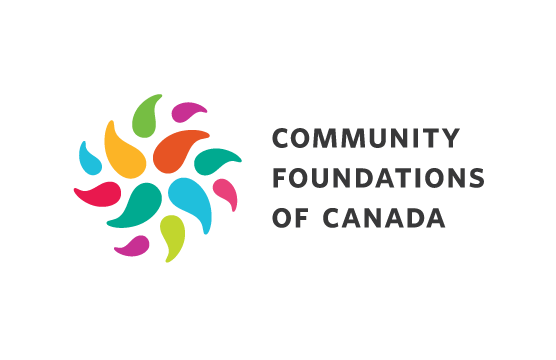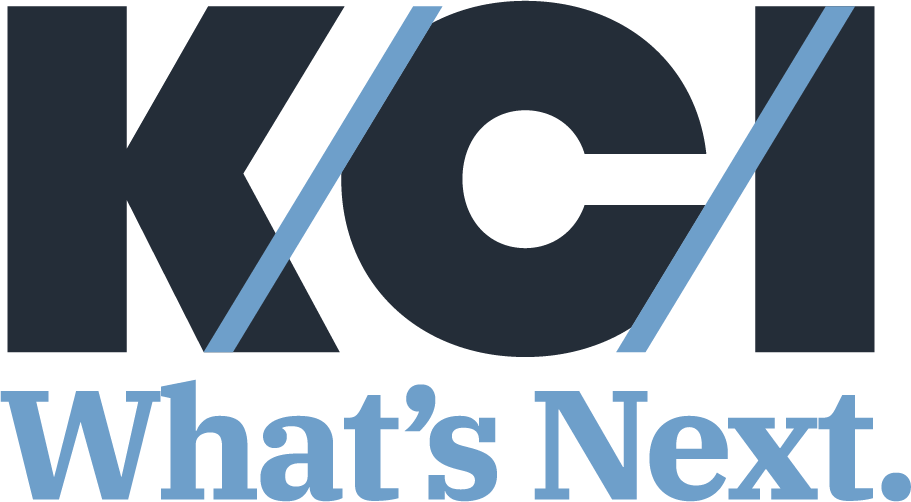Despite facing greater barriers and funder expectations, Black, Indigenous, racialized-led organizations are leading the advancement of equity, diversity and inclusion in the nonprofit sector
Lack of sustained resources, capacity and commitment are hindering the sector’s collective progress on equity, diversity and inclusion, new study shows
Toronto, July 6, 2023 – While charities and nonprofits overwhelmingly express support for the principles of equity, diversity and inclusion (EDI), when it comes to concrete actions many are doing less than they can and should. This finding, from the landmark study Shifting power dynamics: Equity, diversity and inclusion in the nonprofit sector, is a clear wakeup call that charities and nonprofits have not sufficiently prioritized EDI. Led by the Equitable Recovery Collective, a group of organizations working to advance equity in the nonprofit sector, with support from Scotiabank, this new study examined the state of EDI practices in over 1,650 charities and nonprofits across Canada.
In the last three years, the COVID-19 pandemic, countless well publicized incidents of racism, Islamophobia and other forms of discrimination, and the heartbreaking “discovery” of the unmarked graves of children at residential schools have starkly highlighted the systemic inequities in our society. Many charities and nonprofits responded with commitments to change through EDI strategies. However, the study shows that while most organizations are working to improve their practices, only a minority demonstrate a comprehensive and enduring focus on EDI.
“The fact that organizations led by Black, Indigenous and racialized people are taking the lead on advancing EDI in the sector while navigating the systemic discrimination they aim to dismantle may be surprising to many. But it’s not surprising to those of us belonging to equity-seeking groups. We have always been acutely aware of this reality,” said Kris Archie, CEO of The Circle on Philanthropy and member of the Equitable Recovery Collective. “But now that we have evidence to demonstrate it, we’re calling on nonprofit organizations, especially those that are settler-led, to commit to advancing EDI within our sector and in society more broadly. We’re also calling on funders to support nonprofits in a manner that’s equitable, and that will allow all organizations to focus on this important work.”
From staff recruitment and retention to how organizations use information about the people they serve, the study shows significant gaps in equity practices depending on organizational leadership, level of commitment to EDI, intentionality of action, and the resource and capacity challenges organizations face. However, it also shows clear evidence of ways to improve, including establishing equity working groups and learning from the practices of Black, Indigenous, and racialized leaders whose organizations are leading the way in concretely applying EDI principles.
“Systemic discrimination remains a major barrier to equity, and addressing it must form the foundation for any EDI advancement within the sector and beyond,” said amanuel melles, Executive Director of the Network for the Advancement of Black Communities (NABC) and a member of the Equitable Recovery Collective. “The sector needs to take stock of these findings, engage in conversations about the value of EDI, and learn how to implement concrete EDI practices in governance and management, programs and services, and collaborative efforts. This is why NABC advocated for the Equitable Recovery Collective to conduct this study. We believe this research can be a catalyst for a real movement towards greater equity and justice.”
NOTABLE FINDINGS:
Organizations led by Black and Indigenous people and those from other under-represented communities do more to advance EDI, even though they serve some of the highest-need communities, experience increased expectations, and face greater barriers
The study shows that organizations led by Black and Indigenous people and those from other under-represented communities are taking the lead in advancing EDI in the nonprofit sector. These organizations outperform white-led organizations on almost every EDI measure included in the survey. This is despite the fact that these organizations serve some of the highest-need populations, tend to have fewer resources than white-led organizations, and experience higher demands for accountability from funders. This suggests that personal experience with the harms that flow from a lack of equity, diversity and inclusion continues to influence a leader’s commitment to effecting change.
Lack of capacity and commitment are hindering the sector’s collective progress on EDI
Advancing EDI practices requires sustained investments of time, skill and resources. In the current context, where many organizations are stretched thin by inflation-fuelled demand and chronic underfunding, it is not surprising that survey respondents cited lack of resources and capacity challenges as key barriers to embedding EDI principles in their work. However, the fact that organizations led by Black and Indigenous people and those from other under-represented communities are leading the way when it comes to EDI highlights the central role of intentionality and commitment. Survey results clearly indicate that many white-led organizations, particularly small and mid-sized ones, are lagging in these dimensions, being less likely to adopt the most active equity-enhancing measures or explicitly track progress over time.
Funders can drive change: beyond re-imagining funding and financing practices, funders can use their power and privilege to advance EDI
Organizations led by Black and Indigenous people and those from other under-represented communities are more likely to face challenges with both levels and types of funder support (e.g., lack of long-term and core support). At the same time, these organizations are more likely than white-led organizations to have seen funder expectations related to EDI increase since the pandemic, in spite of the fact this research shows that white-led organizations are the ones lagging in EDI practices. Funders must not only revise their practices to stop discriminating against organizations led by Black and Indigenous people and those from other underrepresented groups but should use their power and privilege to help advance EDI.
“Scotiabank is proud to support this vital research led by the Equitable Recovery Collective to better understand the state of nonprofit organizations’ equity practices across Canada,” said Meigan Terry, Senior Vice President & Chief Sustainability, Social Impact, and Communications Officer at Scotiabank. “The first step in building more equitable organizations and communities is understanding the scale of existing disparities. This research represents an important step in developing nonprofit sector capacity around equity and we hope its insights strengthen approaches for delivering on social change.”
CALL TO ACTION TO THE NONPROFIT SECTOR
Nonprofit organizations need to review their practices and do more to advance equity. This process begins internally, by recognizing the importance of EDI, gathering support (including from external stakeholders), taking stock of the organization’s current situation, strengths and shortfalls, developing a plan of action, and implementing it with intentionality. Possibly more than anything, organizations need to realize that equity is central to all organizations regardless of their mission and that working to further it in authentic, meaningful ways is imperative. This work should be intersectional and engage Black and Indigenous leaders as well as leaders from other under-represented communities.
CALL TO ACTION TO PRIVATE AND PUBLIC FUNDERS
The nonprofit sector is under tremendous pressure to address societal and environmental issues. Charities and nonprofits are chronically underfunded and are struggling to address the basic needs of millions of individuals every day. Funders have a key role to play in financially supporting organizations in their EDI journey and, equally important, putting in place practices and systems that don’t disadvantage equity-seeking organizations. Funders must stop placing the burden of EDI solely on equity-seeking groups. If funders truly care about building equitable and inclusive communities, they must review their policies and practices to place equity at the centre of their principles, and provide financial support in an equitable manner.
STUDY METHODOLOGY
1,655 charity and nonprofit leaders from across Canada completed the Equity Benchmarking Survey, which was conducted online between August 18 and October 31, 2022. The survey explored the following areas: how organizations are integrating EDI into their work; the role of equity working groups in advancing EDI; the factors that enable or hinder the work of organizations as they seek to apply EDI principles; and the role of leadership in advancing EDI.
Complete findings are detailed in a report available at: imaginecanada.ca/equity-benchmarking-project
The study was conducted by the Equitable Recovery Collective, a group of nonprofit organizations which includes the following members: ASE Community Foundation for Black Canadians with Disability, Canadian Red Cross, Canadian Women's Foundation, Community Foundations of Canada, Disability Without Poverty, Egale Canada, Foundation for Black Communities, Imagine Canada, Muslim Association of Canada, National Association of Friendship Centres, Network for the Advancement of Black Communities, Ontario Nonprofit Network, Philanthropic Foundations Canada, Pillar Nonprofit Network, PolicyWise for Children & Families, and The Circle on Philanthropy and Aboriginal Peoples in Canada.
ACKNOWLEDGEMENT
This project was proposed and advocated by the Network for the Advancement of Black Communities (NABC). It was made possible thanks to support from our Lead Partner, Scotiabank. We'd also like to thank our Sector Partner, The Canadian Red Cross Society, and our Knowledge Partners, Community Foundations of Canada and KCI.
Lead Partner
![]()
Sector Partner

Knowledge Partners


About Imagine Canada
Imagine Canada is a national charitable organization whose cause is social good in Canada. Imagine Canada works to bolster the charities, nonprofits, and social entrepreneurs that build, enrich, and help to define our nation and the communities they support around the globe. For over a decade, Imagine Canada’s focus on corporate community investment research has provided a unique view of current practices and tools for effective social impact.
![]()
- 30 -
For further information:
Émilie Pontbriand
Senior Manager, Marketing and External Relations
[email protected]